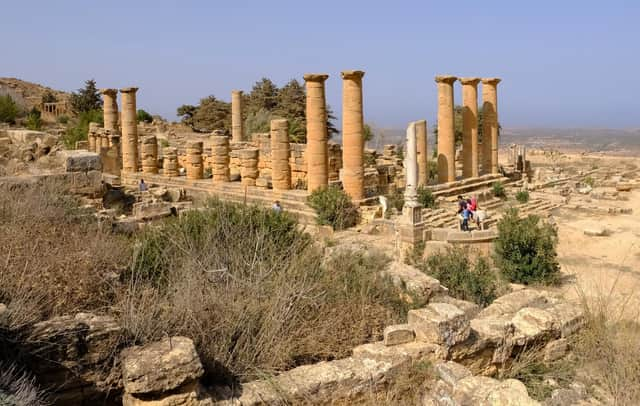How a heart-shaped seed inspired Cyrenians - Ewan Aitken


I’ve done it for so long I think she might start to get worried if I didn’t! But I also do it because I believe you can never take love for granted.
Saying “I love you” in word and action, on a regular basis (not just on Valentine’s Day) is what nurtures what we first felt for each other more than three decades ago.
Advertisement
Hide AdAdvertisement
Hide AdIn a wee twist of fate, or perhaps serendipity, there is a close association with what is now used as the symbol for a loving heart and the ancient Libyan city of Cyrene after which Cyrenians, the homeless prevention charity I work for, is named.
The city was founded around 631 BC by homeless Greeks escaping the drought of their homeland. They left a barren place and found a fertile land where grew silphium, a plant which could be found nowhere else in the world.
Sadly, silphium is now extinct but for several centuries it played a huge role in the life of these refugees as they built their new community. It was used as seasoning, perfume, in medicine and helpfully, both as an aphrodisiac and a contraceptive.
It became so vital to the economy, its “heart shaped” seed appeared on the civilisation’s coins, which is how use of the symbol began to spread across the world. Is it a stretch to call it the world’s first emoji?
Advertisement
Hide AdAdvertisement
Hide AdIt reminds us that the most powerful force in humanity is the power of love. Not just romantic love but love for our neighbour, for strangers and even those who see themselves as our enemy!
It’s why the vast majority of religious and philosophical beliefs have within their core a version of the “power of love” going back to the ancient Chinese philosopher Confucius (and maybe even before him).
When asked if there was one word which anyone could use to guide their living, Confucius replied “shu” which means “reciprocity” or “forgiveness”. He went on to explain this meant “what you would not have done to yourself, do not do to others”. This is what has become known as “The Golden Rule”, a way of making wise choices whatever the circumstances we find ourselves in.
These are difficult times. We hear every day about tragedy, war, suffering and struggle. It can seem overwhelming. It feels like we can do nothing. There seems very little we can do to change things.
Advertisement
Hide AdAdvertisement
Hide AdBut we can control how we treat others. We can make choices about how we see people, how we respond to their choices and their behaviours, especially ones we find challenging or harmful. We can choose to respond in kind or we can choose to act in kindness.
Of course, sometimes the kindest thing is to walk away and not get involved. Living this way is not easy and we will often stumble but even in the attempt we will have chosen a different path.
And every act of kindness will make the world a better place, no matter how small. It will, like the silphium, be a seed of love, created or nurtured.
Ewan Aitken is CEO of Cyrenians
Comment Guidelines
National World encourages reader discussion on our stories. User feedback, insights and back-and-forth exchanges add a rich layer of context to reporting. Please review our Community Guidelines before commenting.